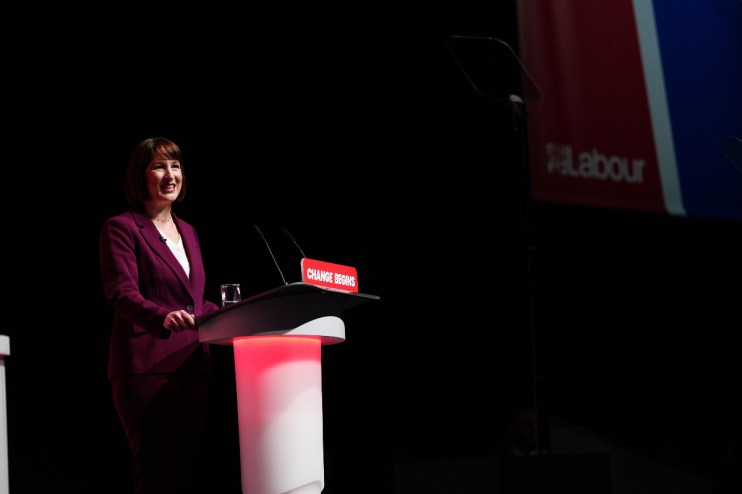City analysts ask Rachel Reeves ‘where will the tax axe fall?’

City analysts have called on Rachel Reeves to clarify where the “axe will fall” ahead of a Budget widely expected to see taxes hiked.
The Chancellor delivered her keynote speech at the Labour Party conference in Liverpool on Monday where she struck a more optimistic economic tone, promising that October 30 would see a “Budget for investment.” Reeves also announced the eagerly anticipated industrial strategy will be unveiled next month.
Despite the Chancellor’s efforts to offer a more upbeat tone, many in the City remain nervous about the scale and scope of future tax hikes.
Tom Selby, director of public policy at AJ Bell, said: “While the Chancellor’s tone may have been more positive, she left the conference in no doubt that painful decisions are coming in the Budget… although the country remains in the dark on where exactly the axe will fall.
“Like nature, politics abhors a vacuum. The lack of clarity has led to inevitable speculation about possible revenue-raising reforms to pension tax relief and tax-free cash, as well as capital gains tax (CGT).”
Rachael Griffin, tax and financial planning expert at Quilter, suggested Labour could improve tax fairness while achieving its goals via a combination of: simplifying and modernising gifting and inheritance tax laws to encourage “earlier wealth transfer”; offering clarity on pension-related tax changes to “help retirees avoid making rash, ill-advised financial moves”; and addressing the ‘cliff-edge’ issue for families in the high earnings marginal tax trap.
“We are not supportive of annual wealth taxes which are rarely, if ever, effective,” she said.
“While equalising CGT marginal rates is unlikely to generate the required revenue, removing the CGT uplift on death could encourage earlier wealth transfer and growth.
“There is speculation about aligning dividend tax rates with income tax rates, which could also be on the table.”
And Edward Garston, corporate commercial partner at Spencer West, added: “Rather than ease speculation as to how she plans to bridge the gap in the public finances, in her few conference hall references to tax policy, Reeves chose instead to rehearse references to those taxes which will remain unchanged.
“The only business specific message here on tax policy was a repeat of her commitment to cap corporation tax at current levels. Such a message will do little to allay fears amongst the business sector that taxes are about to increase sharply, particularly an expected hike in capital gains generated through genuine entrepreneurial risk taking. It simply brings the October budget into focus even more.”
Meanwhile, think-tanks and business lobby groups weighed in on the Chancellor’s speech.
Karl Williams, from the Centre for Policy Studies (CPS), warned “looming tax hikes will only disrupt investment decisions, drive jobs overseas, and weaken Britain’s ability to grow.’
John Dickie, chief executive at BusinessLDN, urged ministers to deliver a Budget and industrial strategy “which back businesses looking to innovate, expand and hire”.
He argued alongside extending devolution in London, a “long-term funding deal for Transport for London (TfL), an ambitious affordable homes programme, and an HS2 line which reaches a regenerated Euston would all help to crowd-in fresh investment”.
British Chamber of Commerce director-general Shevaun Haviland said firms would be eager for more detail and “want to know where any increases in the tax burden are likely to fall”.
And Federation of Small Businesses (FSB) policy chair Tina McKenzie stressed: “Labour must be extremely careful not to chill employment and small business investment, especially when it comes to plans on employment law.
“It is of extreme importance that ministers work closely in partnership with small employers on how we get more people, not less, back into work.”
CBI chief executive Rain Newton-Smith said Reeves’ speech “balanced the need for fiscal responsibility with an optimistic pitch to investors about the strengths of the UK economy”.
But she added: “Stability in terms of the government’s tax plans – particularly around headline corporation tax – will help to deliver a dose of the certainty that businesses crave.”
Shadow chancellor Jeremy Hunt commented: “The last few months – and today’s speech – were a big opportunity to set out plans to grow the economy.
“The Chancellor once again wasted it with discredited attacks on the opposition. That is not governing – and business confidence is now vanishing as a result.”
